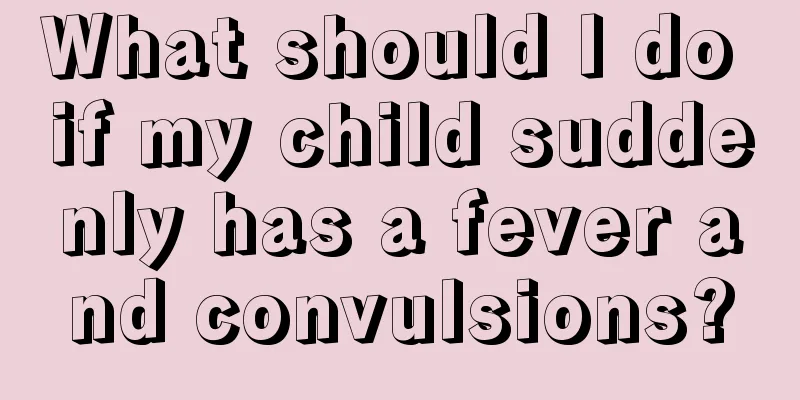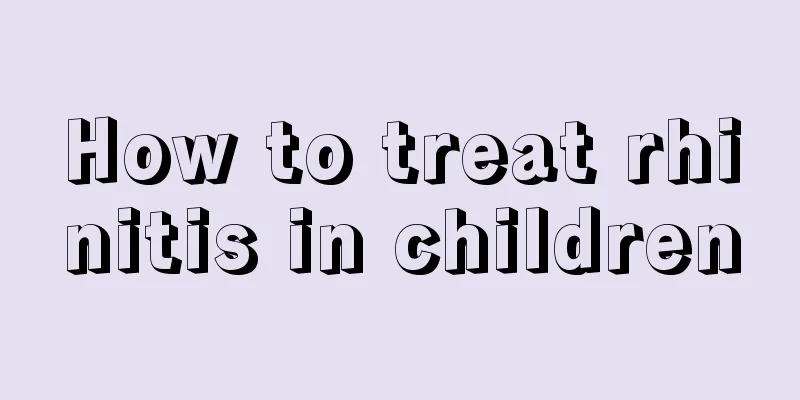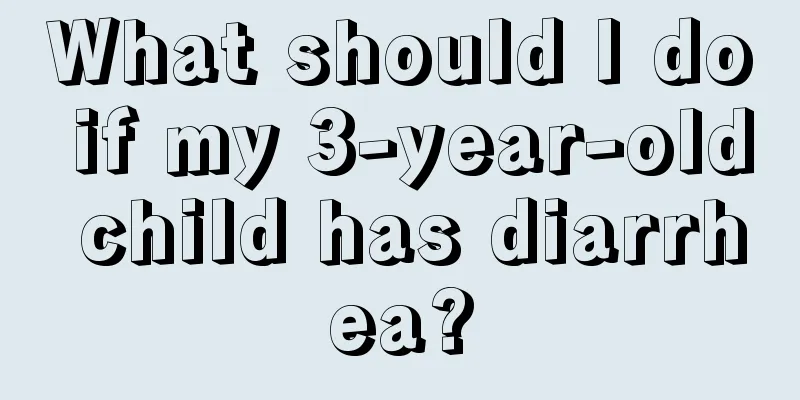What are the dangers of frequent intravenous infusions in children?

|
Because children have low resistance and are easily infected by viruses, which can lead to illness, parents will use intravenous infusion as a treatment method. It is because intravenous infusion can provide rapid and effective treatment. However, all medicines are toxic, especially for children whose body functions and organs are not yet fully developed. Due to the poor absorption capacity of drugs, intravenous infusion may cause some other hazards, and even worse, it will have an impact on the child's future and may affect the child's physical development. So here we will introduce the hazards of intravenous infusion for children. The dangers of intravenous injections in children 1. Increase the burden on the lungs The narrowest capillaries in the human body do not exceed 10 micrometers. Once the particles of the infused drugs are too large, they will cause blockage in the blood vessels. After the drugs enter the blood, particles with a diameter larger than the narrowest part of the capillaries will be filtered out by the lungs and remain in the lungs, causing lung fibrosis and reduced breathing capacity, which may also affect the oxygen supply throughout the body. 2. Drug resistance Frequent infusions may also lead to an "infusion disease". Compared with oral medications, infusions have a higher probability of allergic reactions and are more likely to produce drug resistance, leading to the same disease in the future. If you do not have an infusion, it will be difficult to cure. 3. Adverse reactions occur quickly All medicines have certain side effects. Oral tablets, capsules and other drugs enter the blood through the digestive system. This process is relatively slow and the adverse reactions caused are relatively mild. Some impurities that may cause adverse reactions are broken down or filtered out in the digestive tract. When administered intravenously, the drug enters the blood circulation directly and "quickly and violently" causes adverse reactions such as fever, dermatitis, and rash. In severe cases, it can even lead to shock or death. How to judge whether a child needs intravenous injection First, look at the type of disease and the condition. The doctor will determine what disease the baby has based on the baby's symptoms or some tests and examinations. For example, severe infection requires large doses of antibiotics; high fever, diarrhea, etc. have led to fluid loss and dehydration symptoms have occurred, requiring infusion. The second is to choose the route of administration according to the properties of the selected medicine. For example, some antibiotics or other drugs need to be diluted and dissolved in liquid before intravenous administration, which requires infusion. These diseases do not require intravenous injections 1. Viral colds and bacterial colds: Generally, no infusion is required. Take medicine on time, drink plenty of water, rest more, and monitor body temperature at any time; 2. Mild upper respiratory tract infection: course of illness within 3 days, body temperature below 38 degrees, good mental state; 3. Children with diarrhea: mild dehydration can be treated with oral rehydration; 4. Bronchiolitis: mild wheezing; 5. Hand, foot and mouth disease or herpetic pharyngitis: no fever, good mental state, and normal blood count. Common situations where intravenous drip is needed 1. Severe bacterial infections: such as purulent tonsillitis, otitis media, pneumonia, meningitis, scarlet fever, appendicitis, etc., require infusion. The purpose is not only to reduce fever, but also to use medicines targeting pathogens and symptoms. 2. Severe dehydration: For example, if the child has gastrointestinal discomfort, severe diarrhea and vomiting, and cannot eat, in order to avoid severe dehydration, intravenous infusion is needed to replenish water and lost electrolytes. It can also allow the baby's gastrointestinal tract to rest properly to reduce the burden on the baby's gastrointestinal tract. 3. Asthma attack: The baby's asthma attack is relatively urgent. If medication is not taken in time, there is a risk of suffocation. At this time, you may need to immediately inject some anti-asthmatic drugs into the body.
|
<<: Children have repeated fevers, beware of these three factors
>>: Correction process and precautions for children's pigeon toes
Recommend
What foods can children choose to eat to replenish kidney deficiency
The best time to nourish the kidney is in winter,...
Chinese medicine massage for children with cough
Nowadays, traditional Chinese medicine treatment ...
What should I do if my child has a cough and phlegm after catching a cold?
When a child coughs and has phlegm after a cold, ...
Reasonable sleep and rest time for one-year-old baby
For babies around one year old, they are still gr...
What nuts are good for children?
Women will eat a lot of nutritious food during pr...
How to reduce swelling of child's hand
If a child has swollen hands, parents must unders...
Preventive nursing care for newborns with cold and vomiting
In fact, in daily life, many people choose to go ...
Can children eat watermelon when they have a cold?
When the seasons change, children are particularl...
What does hot lungs look like?
Heat rash is a very common disease. In fact, heat...
What to do if your baby chokes on medicine
It is normal for babies to be unwilling to take m...
Treatment for children's blinking
Children should pay attention to some physical ch...
How to treat diarrhea in infants and young children?
Infant diarrhea is also called infant indigestion...
What should I do if my child has a fever, convulsions, and foaming at the mouth?
If a child has a fever, no matter how high the fe...
The dangers of eating nails
There are many children who often like to bite th...
Sleep time for a two-month-old baby
The sleep time of a two-month-old child should be...









